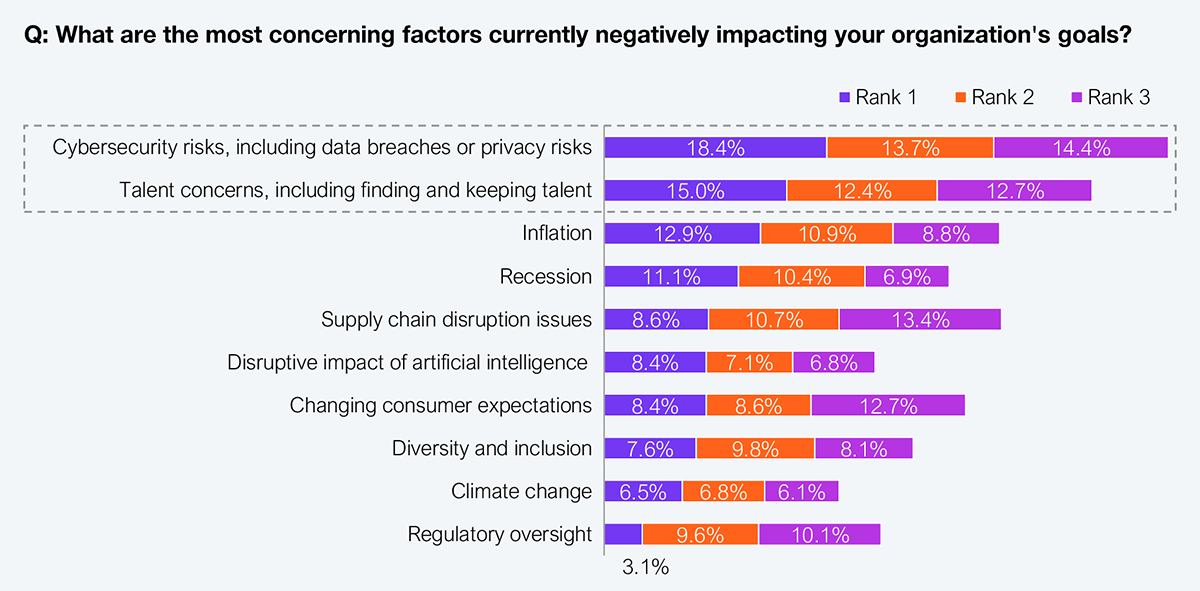Enterprise digital teams grapple with rising cyber threats, data quality failures, and system misconfigurations during software, AI, and LLM deployments. As reliance on AI-driven decision-making grows, these risks jeopardize operations and trust. To thrive in an interconnected economy, enterprises must prioritize robust quality engineering and assurance, ensuring secure, reliable, high-performing systems that safeguard against vulnerabilities while maximizing AI’s transformative potential.
For instance, a misconfiguration in Microsoft’s Azure Active Directory during a security update in 2024 allowed CrowdStrike’s Falcon platform to bypass authentication protocols, affecting 250 million users globally and causing an estimated $1 billion economic impact. Robust validation could have prevented this. The same year, Air Canada had to compensate customers for providing inaccurate information from its AI-based chatbot. Later, the airline changed its AI strategy by enhancing quality assurance practices with support from in-house and third-party partners to improve the customer experience and minimize disruptions. These steps reflect a broader acknowledgment of the vital importance of quality in AI deployments.
HFS’s Pulse survey (see Exhibit 1) indicates that most enterprises view cybersecurity risks, such as data breaches and privacy concerns, as significant obstacles to achieving their goals. This is especially true as global enterprises move toward services-as-software and automate tasks with software but implement few quality engineering practices. To prevent data breaches, enterprises must enhance quality engineering practices and update their talent to stay relevant with the latest AI innovations. This is a significant challenge in the software testing industry.

Sample size: 605 enterprises from Forbes Global 2000 companies
Source: HFS Pulse Data, April 2024
In November 2024, prominent quality engineering and assurance firms, including QualiZeal, Tricentis, Testsigma, LambdaTest, and Digital.ai, convened a quality engineering (QE) conclave in Hyderabad, India, to highlight the challenges and solutions AI presents within the software development lifecycle. The event drew more than 500 professionals and was themed ‘Future of Quality Engineering: Navigating 2025 and Beyond.’
The discussions were on enterprises prioritizing speed, cost-efficiency, and automation above software quality testing—a high acceptance of risk that resulted in misconfigurations, biases, hallucinations, and customer data quality issues. This risk is compounded for AI solutions as the output from GenAI is often re-ingested into the data repositories. Bad results are added to the trusted data sets, perpetuating more inaccuracies in the future. This calls for a rebalanced approach that emphasizes trustworthy deployment, effective quality engineering practices, and solid quality assurance throughout the development process.

Photo: QE conclave panelists and moderator
Integrating AI into software development revolutionizes product development and enables the rapid generation of thousands of lines of code in seconds. However, this speed requires careful human oversight to ensure quality, security, and valid functionality while addressing fallacies and biases through advanced testing. Fortunately, AI-powered quality engineering is also evolving with approaches such as improved testing agents, predictive testing, and human-AI collaboration.
Meghana Jagadeesh, CEO of GoCodeo, said that recent advancements have significantly impacted the intelligent testing market. This market is expected to grow from $4 billion to $8.1 billion between 2024 and 2026, a 2.1-fold increase. This brings notable advantages, including a 60% reduction in time to market, an impressive 87% decrease in regression bugs, a 40% reduction in testing time, and a 94% improvement in test coverage—highlighting AI’s transformative potential in streamlining and enhancing the software development process.
Capgemini’s World Quality Report 2024 showed that about 71% of organizations have integrated AI and GenAI into their operations. Of these, 34% leverage AI for quality engineering tasks, and the remaining create strategic roadmaps after experimentation. The QE leaders expect about 70% of quality professionals’ roles to change in the next three years. This highlights the need to acquire AI skills to remain competitive, productive, and innovative.
Madhu Murty, head of QualiZeal India, pointed out that QE professionals should not be egotistical about using AI but fully embrace it. Those refusing to adapt will be replaced by individuals who embrace and learn AI tools and innovative testing methodologies.
Enterprises digital teams, technology providers, and quality engineering firms must consider the following strategies to create quality-focused delivery and outcomes:
Enterprises must recognize the importance of quality in their AI strategies as GenAI and LLMs revolutionize the software testing landscape. This transformation will enhance automation and efficiency while also changing the roles of testing professionals. Staying updated with these trends is crucial to delivering high-quality software in a complex technological environment.
When evaluating quality engineering firms, enterprise digital teams should consider their latest AI-based testing methods, training strategies, and innovative approaches to identify data quality, security, and ethical issues and ensure high-quality outputs.
Register now for immediate access of HFS' research, data and forward looking trends.
Get StartedIf you don't have an account, Register here |
Register now for immediate access of HFS' research, data and forward looking trends.
Get Started